Master German starts here with LGK
.jpeg)

.jpeg)
.jpeg)
Master German starts here with LGK
.jpeg)

.jpeg)
.jpeg)
.jpeg)
Here you will find rapid and guaranteed success with highly qualified teachers and modern teaching methods and curricula
Our classes are not just about learning a language, but also about discovering German culture and society
Here you will find rapid and guaranteed success with highly qualified teachers and modern teaching methods and curricula
Your journey to Germany starts here with LGK
Our goal is to make you learn German with passion
Our motto is our excellence, and your trust is what drives us forward







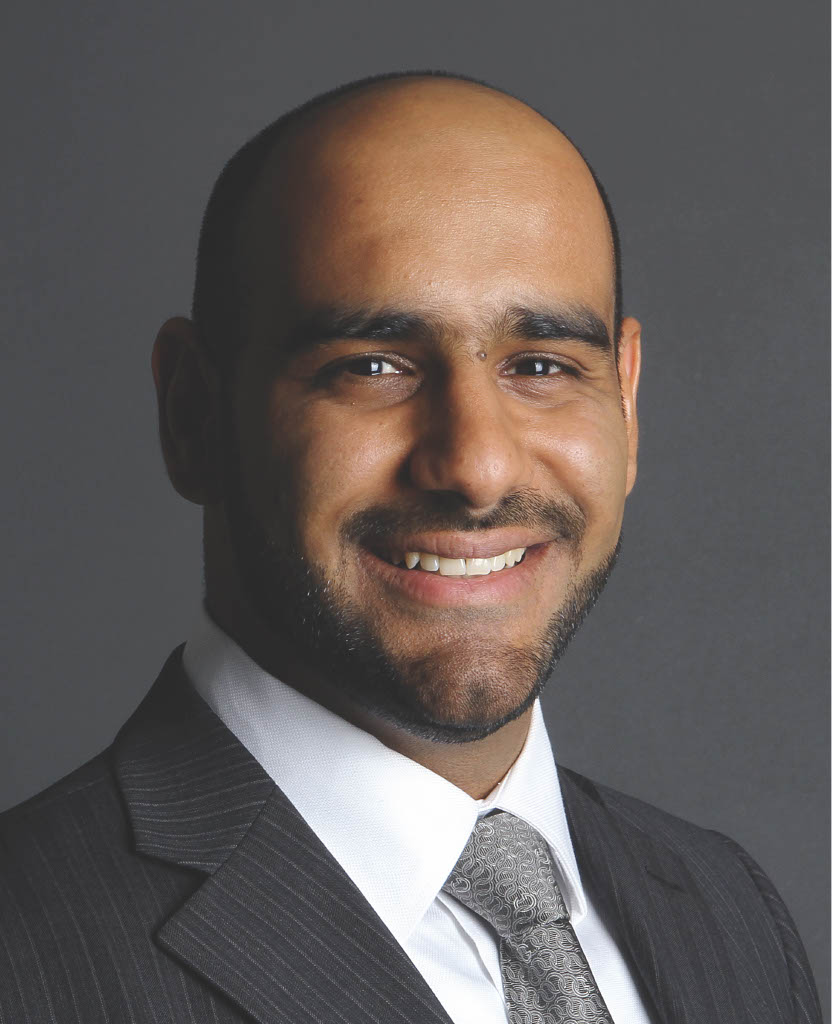










The A2 level represents the Waystage or Elementary phase of the Common European Framework of Reference for Languages (CEFR). At this stage, a learner transitions from basic survival phrases to functional, cohesive communication.
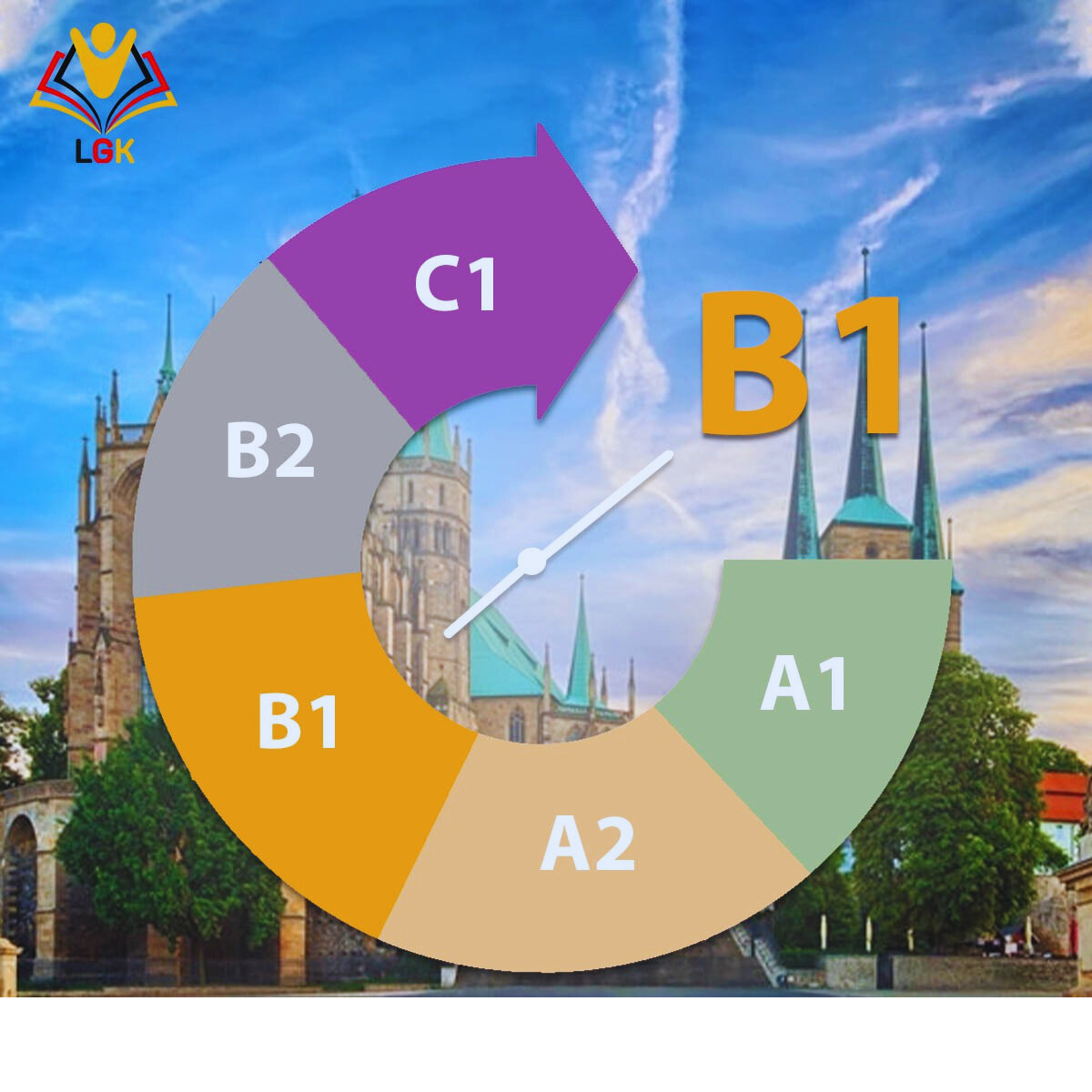
Move towards fluency in German with level B1! After mastering the basic levels, B1 opens up new horizons for you to express yourself confidently and with a deeper understanding of the German language. This level represents a real turning point in your language learning journey.
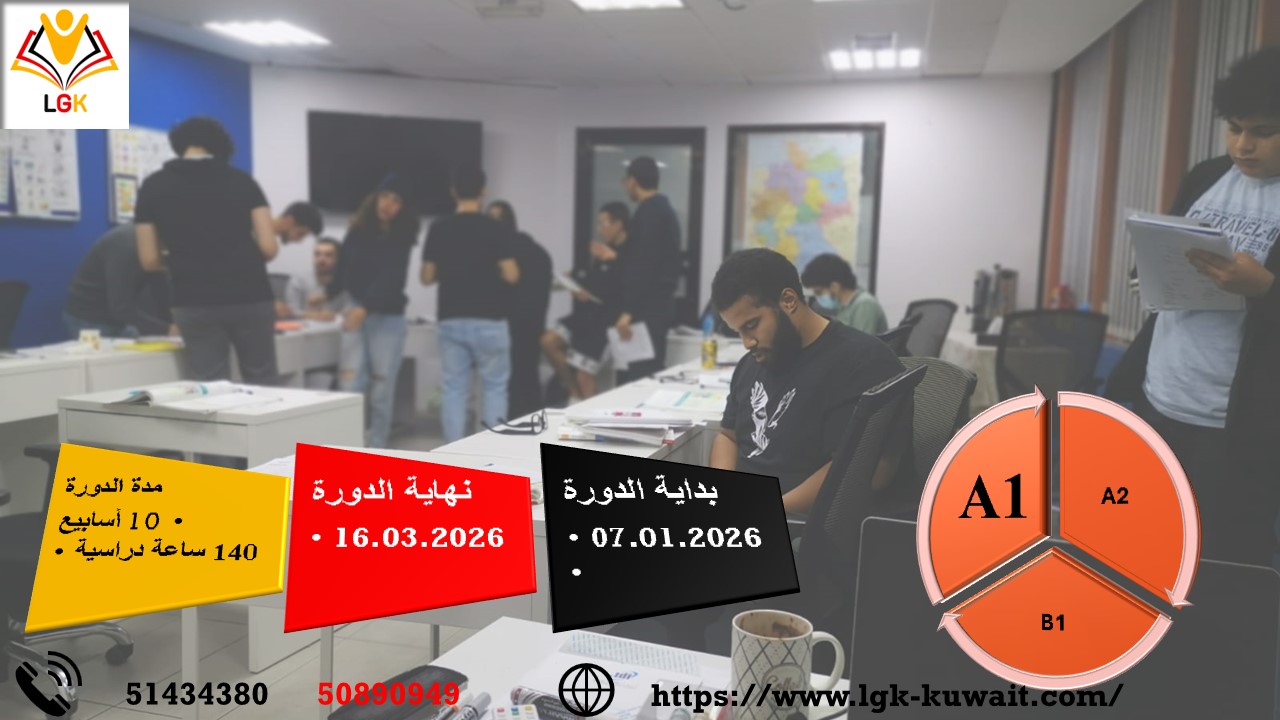
At the A1 level you begin understanding frequently used expressions that are related to a wider variety of topics as long as they are of immediate importance (like work, the environment around you and shopping). Communicating in routine situations and exchanging familiar information will also be easier at this level. A2 German speakers can describe their origin, education and other common attributes about their person or their past.

Level B1 is the third stage of learning the German language. In level courses in German you can understand the main points if the speaker uses clear standard language

Level A1 in German will be sufficient for simple everyday interactions, example: as a tourist in a German-speaking country. However, A1 level will not be sufficient for professional and academic purposes

Social Interaction: Ability to exchange information on familiar and routine matters (e.g., professional background, direct environment, and immediate needs).
Comprehension: Capability to understand frequently used expressions and high-frequency vocabulary related to areas of most immediate relevance.
Narrative Skill: Can describe aspects of their past, education, and surroundings using simple linear structures.
Functional Literacy: Ability to extract specific, predictable information from everyday materials like advertisements, menus, and timetables.

What will you learn?
Why choose level B1?
Join us now and start your journey towards fluency in German!

- Can understand sentences and commonly used expressions associated with topics directly related to his/her direct circumstances (e.g. personal information or information about his/her family, shopping, work, immediate surroundings).
- Can make him/herself understood in simple, routine situations dealing with a simple and direct exchange of information on familiar and common topics.
- Can describe his/her background and education, immediate surroundings and other things associated with immediate needs in a simple way.

- You can handle most situations, for example, you encounter while travelling in the language area.
- You express yourself simply and consistently on familiar topics and areas of personal interest.
- You can report experiences and events, describe dreams and goals in life, give a brief explanation of plans and opinions.
- Level B1 is suitable for everyday life.

According to the Common European Framework of Reference for Languages, a person at level A1 can:
- Understand and use common everyday expressions and very simple sentences designed to meet basic needs.
- Introduce himself and others and ask and answer questions about personal details such as where he lives, people he knows, and things he owns.
- Interact simply, provided the other party speaks slowly and clearly and is ready to help.
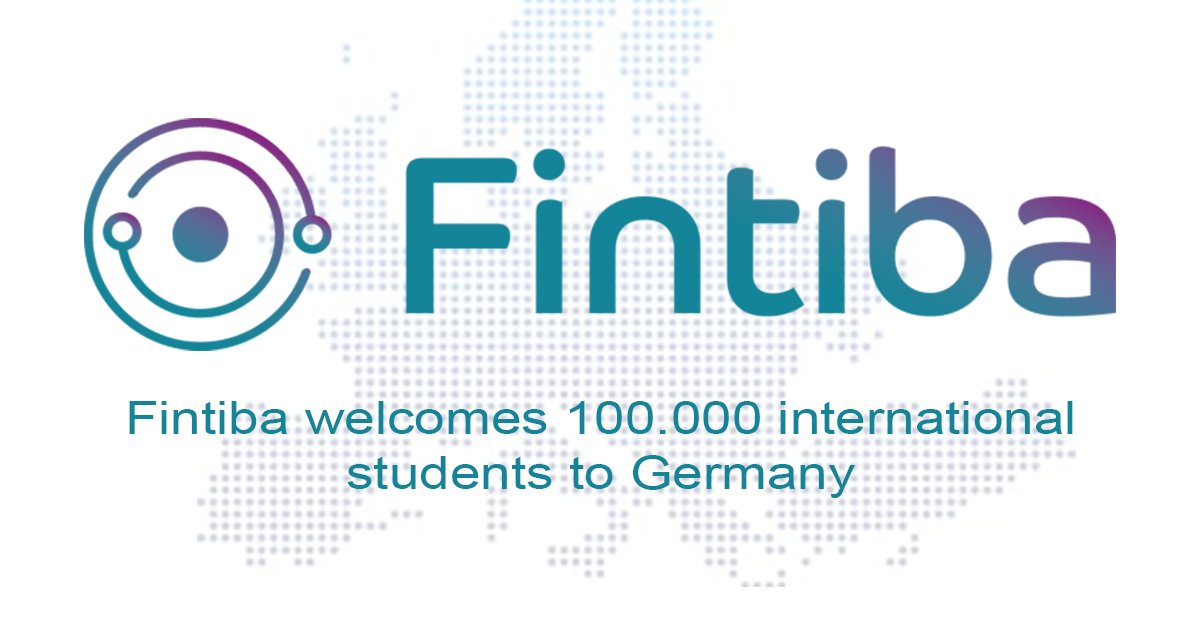
Here is a complete explanation and response to all your inquiries and everything you need to know about opening your closed account in Fintiba Opening a closed bank account in Fintiba is not difficult at all, the process will not take more than ten minutes, but why does the student need to open a...
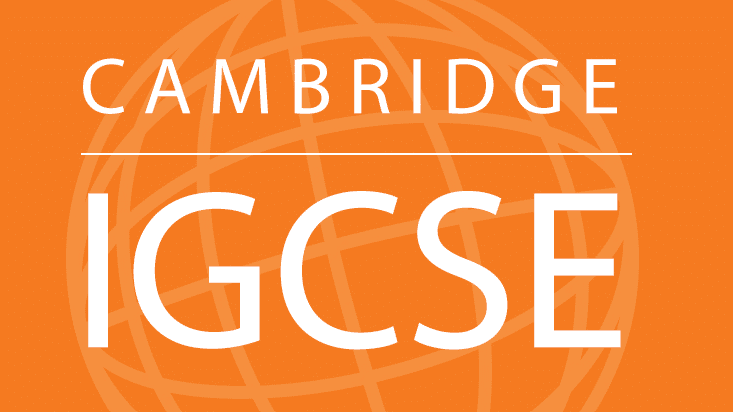
At the request of many students and parents, we present to you the requirements to study in Germany for British High School students (IGCSE): First - British high school graduates wishing to study medical sciences (medicine, dentistry, pharmacy, physical therapy, etc.): In order to enroll and secu...
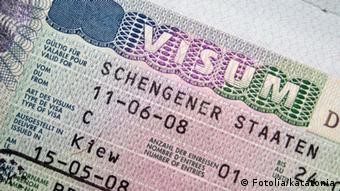


The German Tax System What taxes must be paid in Germany and who must pay?

In principle, anyone who comes to Germany and wants to stay longer than three months must register their residential address"Anmeldung" with German authorities two weeks later. Even if you are not a refugee, you must contact the local authorities such as "Einwohnermeldeamt" or "Bürgeramt", according...




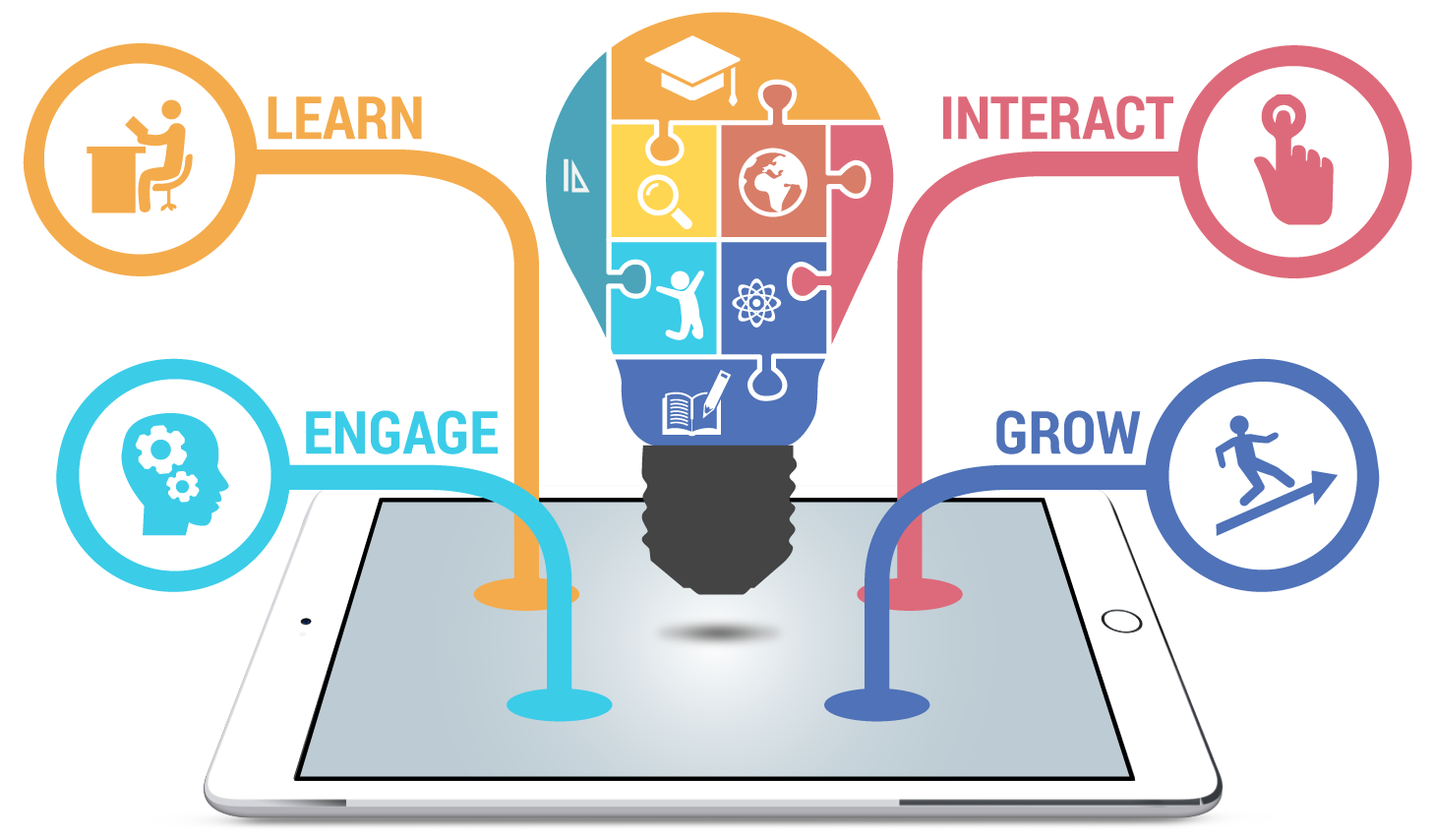

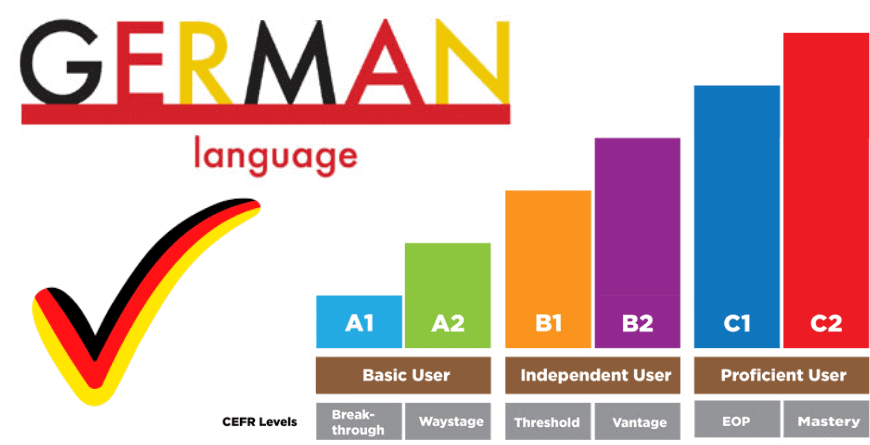
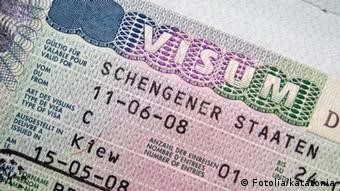
Marriage and the family enjoy special protection in Germany. However, it is not easy for third-country nationals to bring their families to Germany. It mainly depends on the state of residence. However, in most cases several conditions must be met. In this article, you can learn everything about fam...

The determining factor in our ability to work in Germany is our legal residence status. Because it is the residence status that determines the possibility of obtaining a work permit, in this section you can find out the rules that apply to each case.

In this article, we will explain the health insurance system in Germany and what you need to know in general, whether as a student or as a worker in Germany. In the second part, we will talk about the most important matters and laws that concern students studying in Germany, in particular, regarding...

With practical vocational training, practical experience can be gained and the chances of getting a job are greatly improved. In many schools and universities, students are expected to participate in compulsory internships during their studies. In this section we can learn about the rights of the tr...

Education in Germany is compulsory for at least nine years. It is the responsibility of the German state. At the same time, each of the 16 federal states has its own school system. Only general compulsory education and the grading system are the same. School-leaving qualifications obtained in indivi...

Since Germany is a member of the European Union, the German higher education system was harmonized with other European countries during the 2000s. This is called the "Bologna process". Old scores have been replaced.”Diplom” and “Magister Artium” are almost entirely equivalent to the new “Bachelor” a...

Students often have to work alongside their studies to be able to support themselves because a loanBAföG or any other financial support they receive is not sufficient. Some students do not receive any financial aid - the only option left is to work and study at the same time. However, getting a part...

If a person has obtained an academic or professional qualification (in their home country or elsewhere outside Germany), they can often obtain recognition of their degree in Germany. In the recognition process, the certificate a person is with is compared with a similar German degree - when his qual...
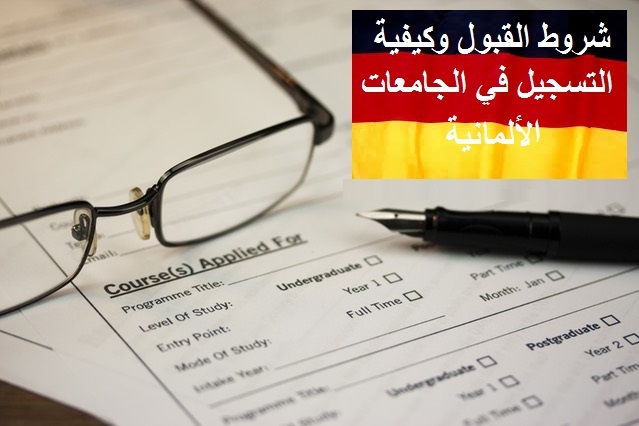
Regardless of whether you want to stay in Germany or not, studying at a German university opens up many opportunities for your future career. First of all, it must be said that studying in Germany is not easy, as students must fulfill some conditions and observe many deadlines and rules related to t...

In this article, we will answer all the questions that revolve around the subject of a closed bank account in Germany via FentepaFintiba, and how to explain the opening of a closed account in Germany in order to obtain a study visa in boring detail.

Thousands of international students, especially Arabs, seek to study medicine in Germany, so we have prepared a complete guide on the conditions for studying medicine in Germany as well as German medical universities and the cost of studying medicine as well.
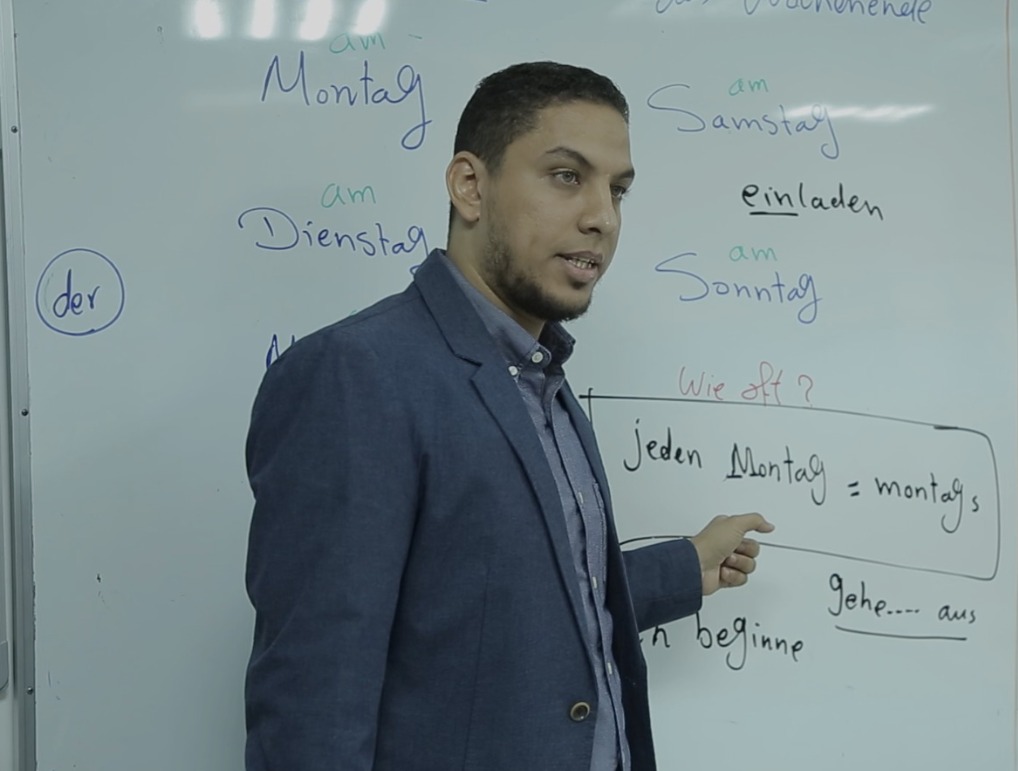


جودة الشرح ممتازة جدا والمدرس يركز على خلق أجواء تعليمية جميلة وممتعة ويوصل المعلومة ب افضل السبل ويتابع معاك خطوة ب خطوة وحتى في البيت 👌🏻
طه
Student